
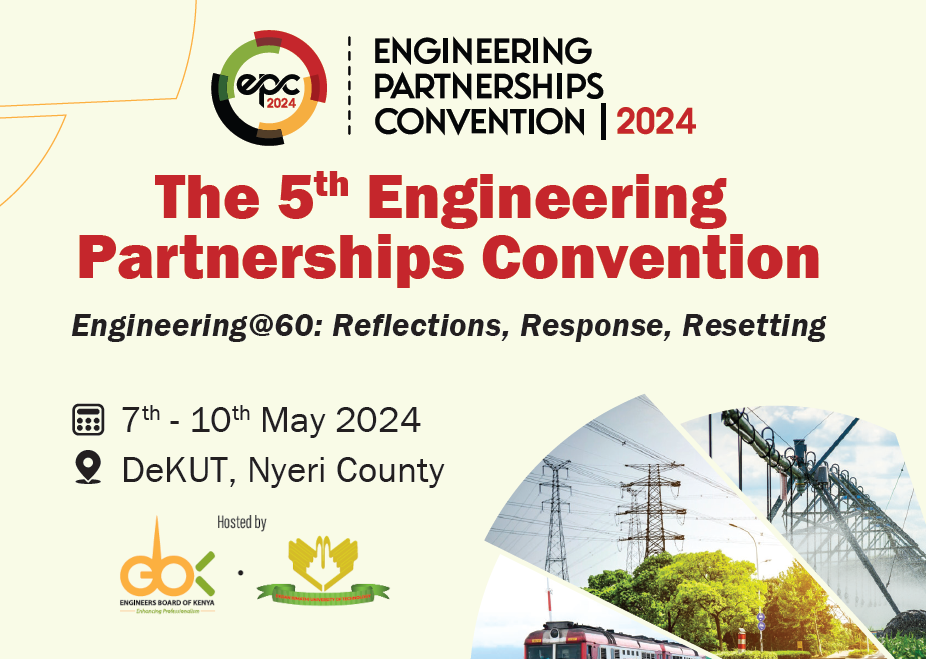
The 5th Engineering Partnerships Convention (EPC) 2024 was held from 7 to 10 May at the Dedan Kimathi University of Technology (DeKUT) a public university located in Nyeri County, Kenya, under the theme “Engineering@60: Reflections, Response, Resetting”
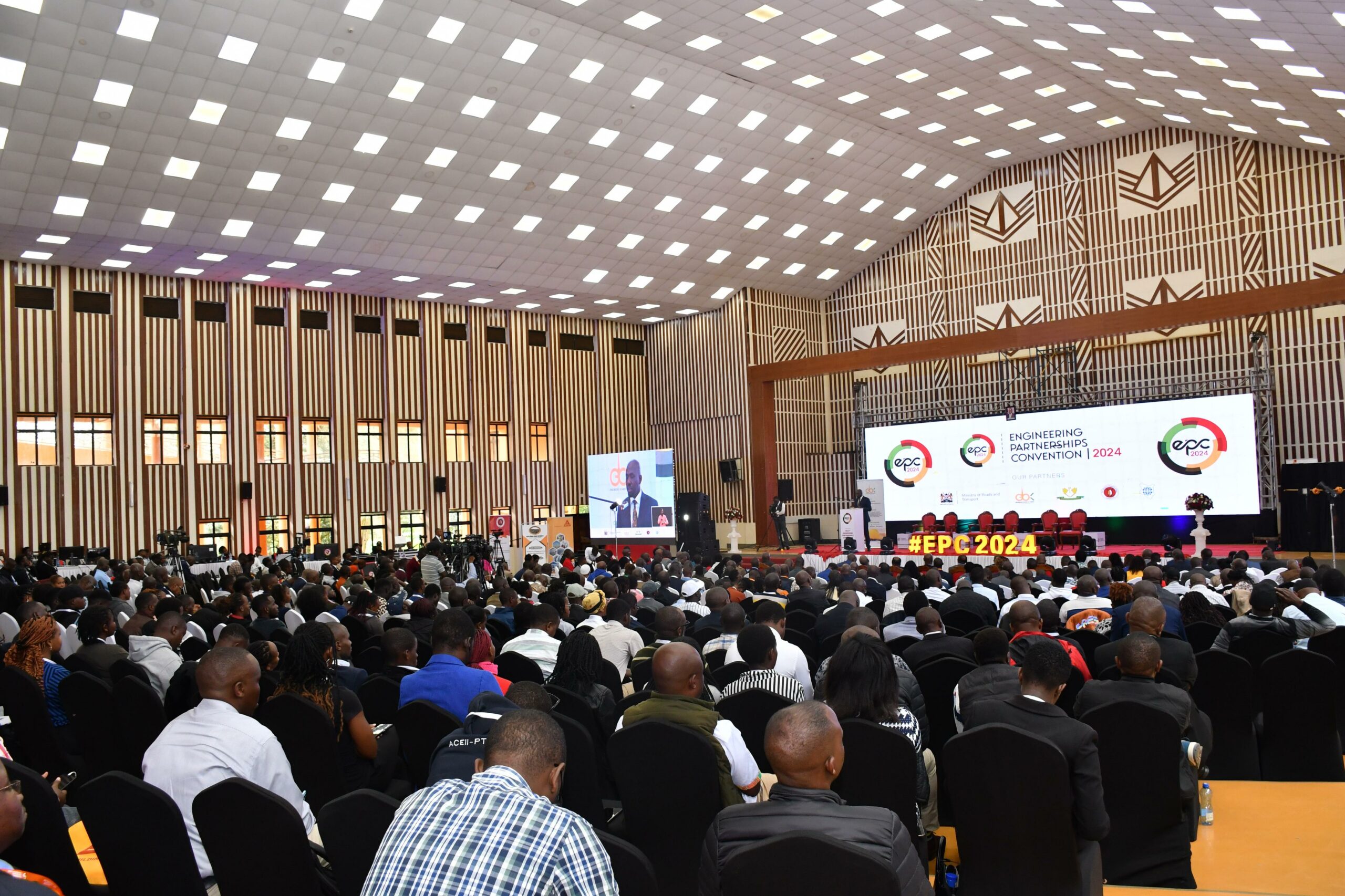
The Convention was hosted by the Engineers Boards of Kenya (EBK) in partnership with the State Department for Roads.
The official opening of the convention was made by Hon. Kipchumba Murkomen, EGH – Cabinet Secretary, Ministry of Roads and Transport, representing the Chief Guest, H.E Hon. Rigathi Gachagua, EGH – The Deputy President of the Republic of Kenya, and WFEO President Mustafa Shehu.
The event was attended by over 1881 delegates both physically and online indicating the significance of the convention to the engineering profession.
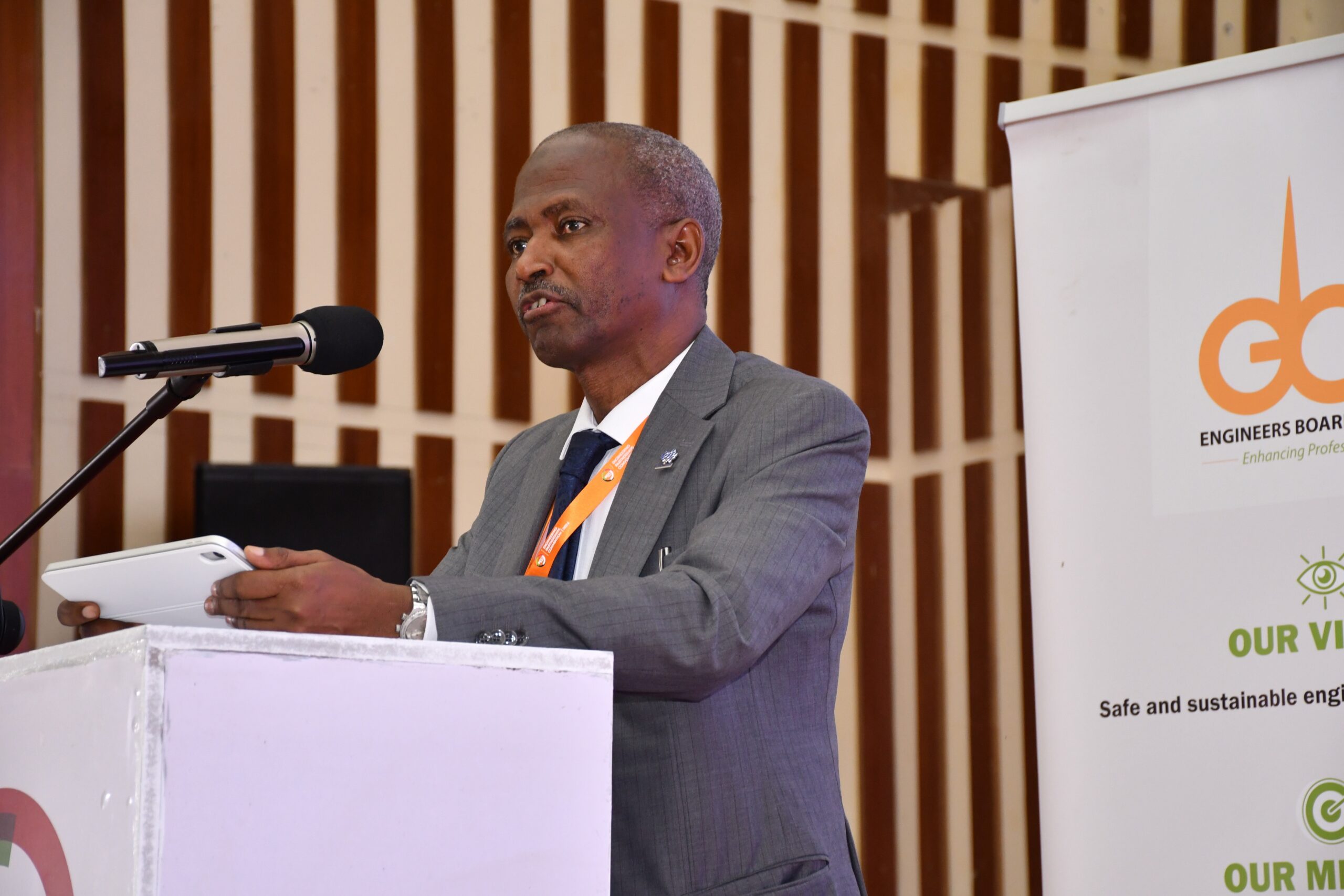
WFEO President Mustafa Shehu delivering his keynote address during the opening
In his address, Eng. Mustafa B. Shehu highlighted the significant role of regulatory bodies in the globalization of engineering practices. He emphasized the importance of regulatory bodies in maintaining standards and ethics in engineering, as the world became increasingly interconnected. This interconnectedness had blurred geographical boundaries and necessitated that engineers adapt to this new reality, ensuring that their practices align with global standards while addressing the unique challenges and opportunities that globalization presented.
Shehu outlined the mission and activities of WFEO, established under UNESCO in 1968, which aims to unite engineers from diverse backgrounds to promote sustainable development and innovation. He noted that the WFEO plays a pivotal role in advocacy and guidance, engaging with governments, industries, universities, and professional institutions. It participates actively in international efforts, particularly with the United Nations, to address critical global challenges such as climate change, disaster risk mitigation, and food security. Through these collaborations, WFEO ensures that engineering solutions contribute to sustainable development goals.
Further, the President noted that the WFEO promotes diversity within the engineering profession, recognizing that varied experiences and backgrounds enrich globalized engineering practices. The organization supports strong policy implementation committees, including those for women in engineering and young engineers. With a membership spanning over 100 countries, WFEO’s leadership reflects this diversity. Shehu’s presidency itself signified this commitment to inclusivity, highlighting initiatives like the Africa Projects Committee and capacity-building programs aimed at empowering African engineers and ensuring they have the necessary skills and opportunities.
Addressing the role of regulatory bodies, Shehu underscored the importance of setting standards, licensing, certification, accreditation, ethics, and discipline in the engineering profession. He stressed that engineering regulatory bodies must enforce standards and codes of ethics to maintain public and government confidence. He further noted that these bodies also play a crucial role in facilitating the global mobility of engineers by harmonizing standards and ensuring mutual recognition of qualifications.
In concluding, Shehu called for trust in African engineers and advocated for opportunities for young engineers to gain experience and training, emphasizing that the progress of the continent relied on developing and utilizing its engineering talent.
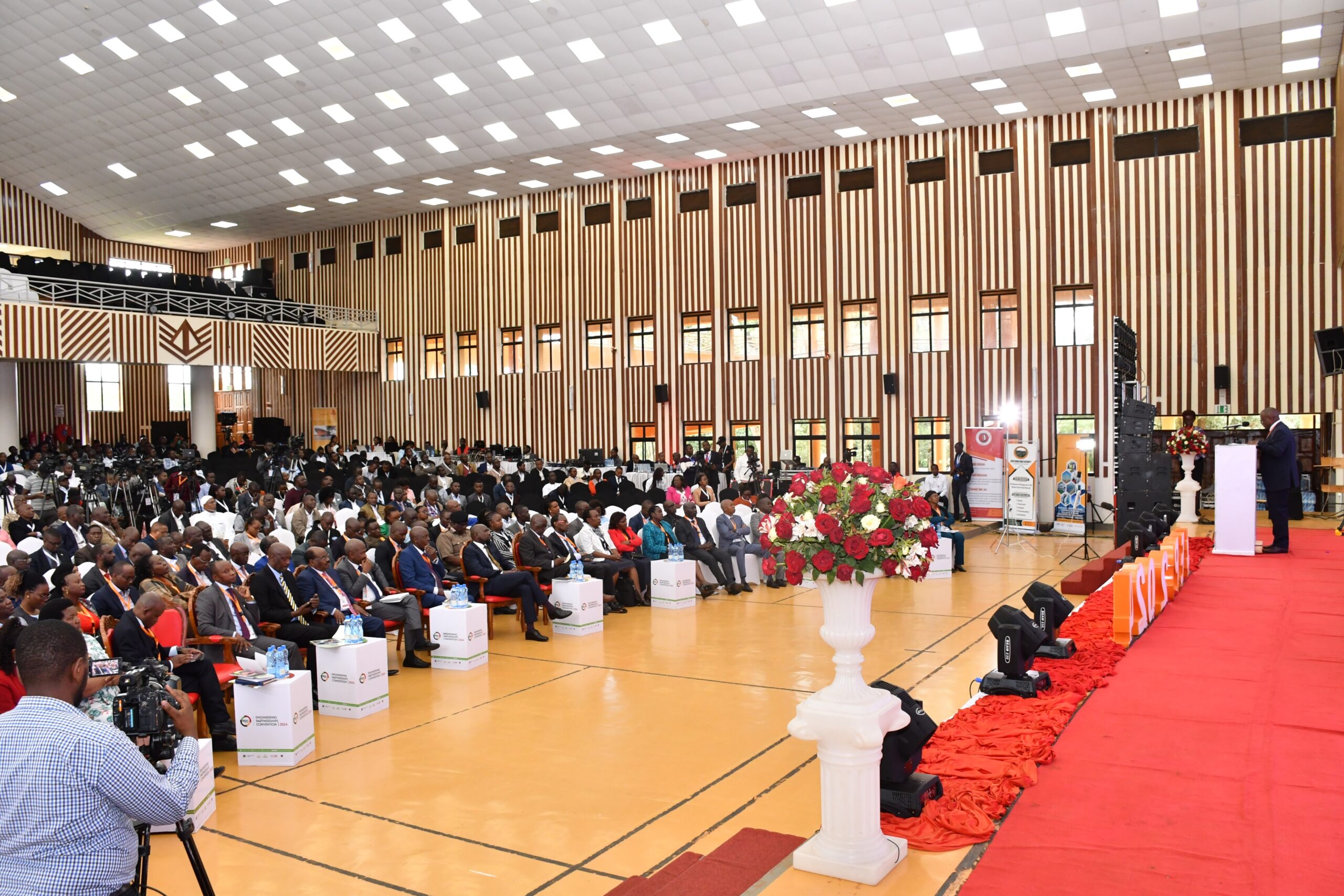
The key thematic areas covered during the convention included:
- engineering ethics and standards;
- the need for proper regulation of engineering services;
- global collaboration opportunities for engineering practice;
- efforts by the WFEO to ensure Africa’s interests are well taken care of on matters of development projects;
- manufacturing and value addition for national prosperity;
- enhancing food security through mechanization;
- financing of infrastructure projects through Public-Private Partnerships (PPP);
- liberalizing professional engineering services;
- adoption of frontier technologies;
- green transition for economic growth and sustainability;
- and education for wealth, employment creation and global competitiveness.
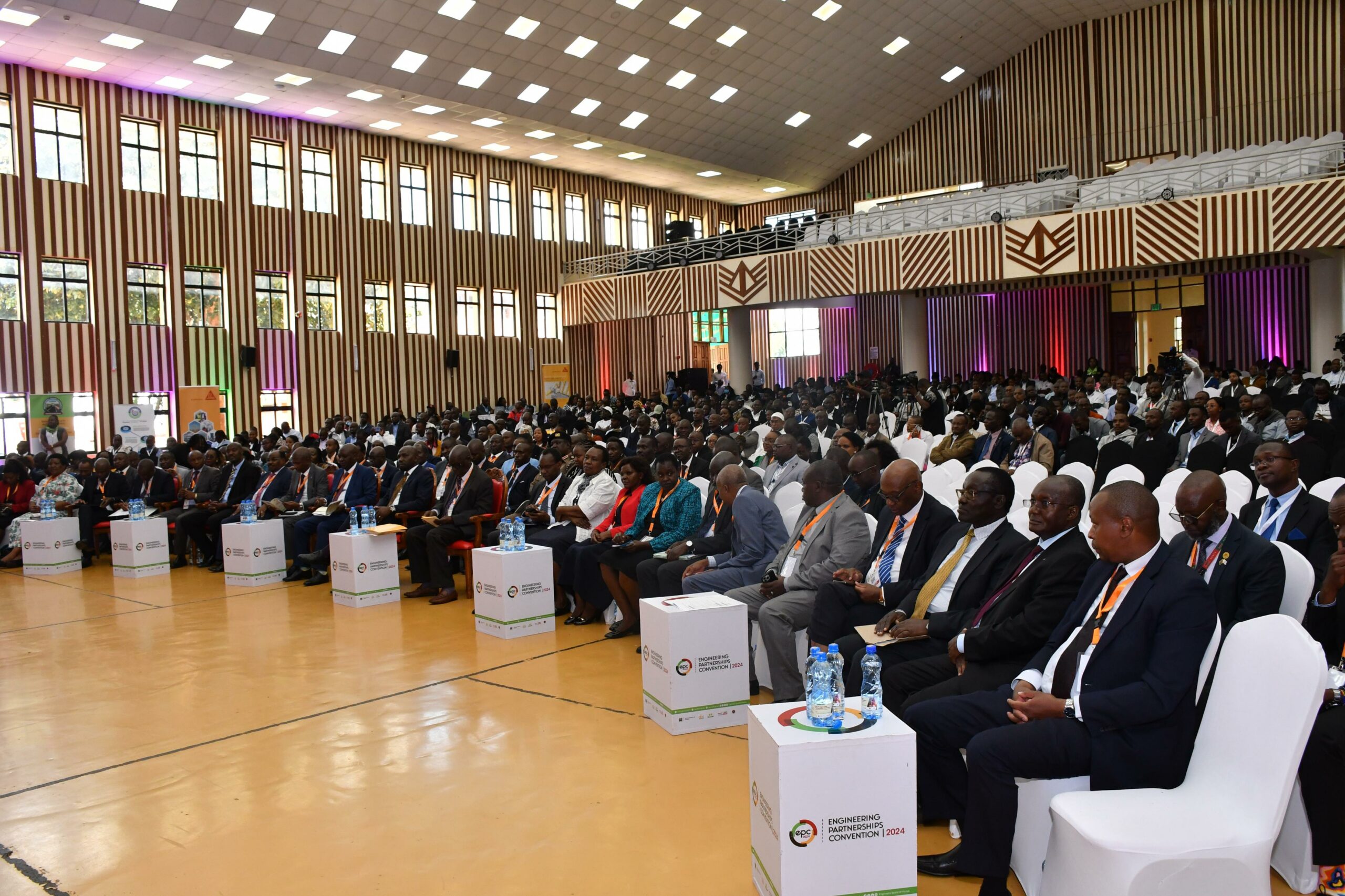
The convention culminated in identifying key policy interventions areas including:
- re-introduction of extension services to facilitate training of farmers on improved methods of farming to enhance productivity;
- stopping the fragmentation of agricultural land;
- developing centers of excellence in all the public universities modelled on the DeKUT Science and Technology Park to drive industrial research and development;
- developing a Kenya National Semiconductor Strategy to promote technology, economic competitiveness, and boost national security;
- deliberate support to Kenya’s bid to accede to the Washington Accord under the International Engineering Alliance (IEA);
- multi-agency approach to the accreditation of Engineering programmes in Kenya;
- licensing and regulation of research touching on sensitive sectors of the economy that touch on National Security;
- mainstreaming of Intelligent Transportation Systems (ITS) to enhance road safety and efficiency;
- ringfencing the funding for capacity building and training for technical state departments;
- ensuring all foreign engineers practicing in Kenya are registered and regulated;
- supporting the enhancement of technical capacities within the County Governments;
- and finally, reviewing and harmonizing of the various regulatory frameworks in the built environment.
By providing a platform for Government, academia and industry to interact, share knowledge, and exchange ideas, the Engineering Partnerships Convention (EPC) remains a critical event championing engineering excellence in Kenya.
Report by Nathaniel Matalanga, Member of the WFEO Executive Council and Past President of the Institution of Engineers of Kenya (IEK)
For more information:
5th Engineering Partnerships Convention program
Engineers Boards of Kenya (EBK) website
Kenya State Department for Roads website
JUL
2024
